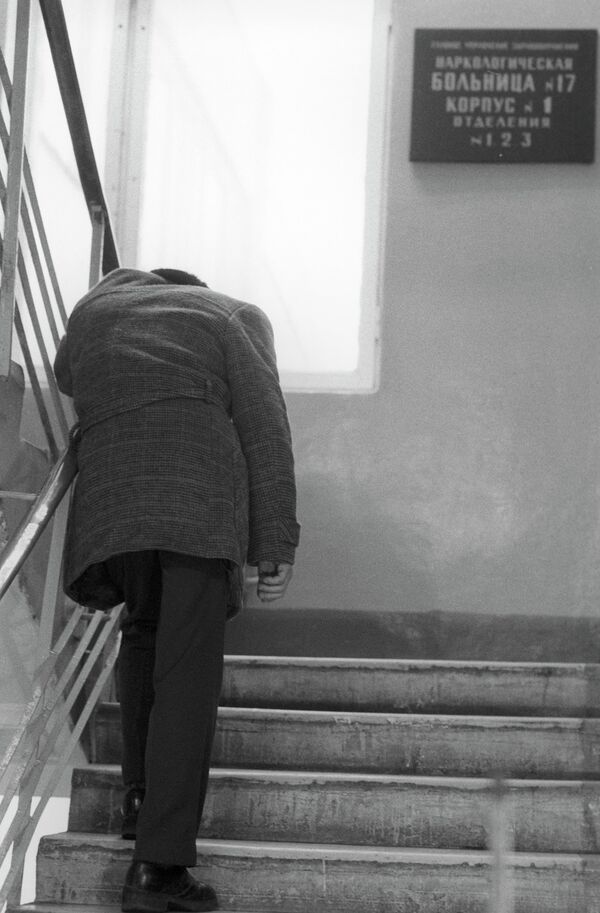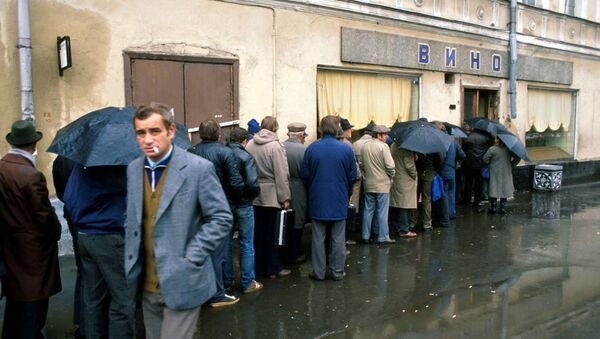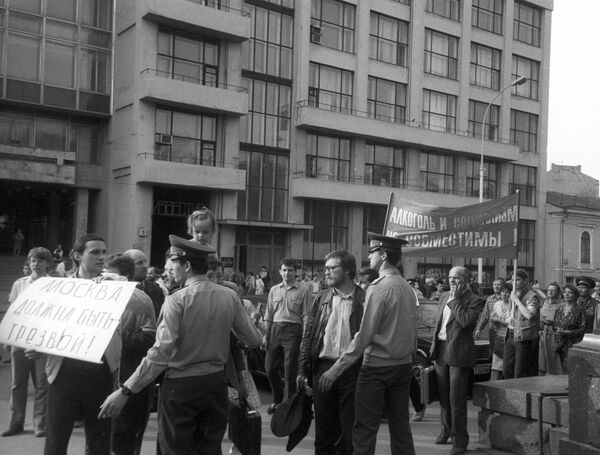Thirty years ago, in May1985, two months after he took the post, the then-Secretary General of the Communist Party of the Soviet Union Mikhail Gorbachev launched the first and most controversial of his reforms – the anti-alcohol campaign, also known in Russia as “the dry law.”
The anti-alcohol campaign was designed to tackle widespread alcoholism in the USSR by raising the price for vodka, wine and beer as well as restricting their sale by amount and time of day.

Alcohol was banned at all official functions and in public places, including on trains, near industrial enterprises, and workplaces.
However, the ambitious plan struck a huge blow to the economy, cutting both alcohol sales and government revenues.
In May 2015 Gorbachev admits that it was mistake the way it was carried out.
“Those were extremes with the closure of the liquor outlets, especially in Moscow. Long queues. The increase in home-production of alcohol. Sugar vanished from the shops. That should not have been a [short-run] campaign, but rather a systematic long-run fight with alcoholism,” the politician confessed in his interview with Russia’s Komsomolskaya Pravda daily newspaper.
“The detoxification of the population can’t be done “in one fell swoop,” it needs years. And you should fight continuously, constantly,” he added.
“I think we should continue it in the present time. If we drop it, it will become worse.”
The reform of 1985-1987 had an effect on alcoholism in the country, as evident from statistics showing some fall in the crime rate and a rise in life expectancy.
During the two years of the campaign the birth rate grew enormously, with some 500,000 more babies being born compared to the previous 20 years.
The life expectancy increased by 2.6 times and reached the highest in the entire history of the country.
In the Soviet centrally planned economy however, the state had a complete monopoly on the legal production, pricing, foreign trade, and distribution of alcohol.
Due to the reform, the state production and sale of alcohol was massively reduced: by 1987, the number of stores selling wine and vodka in Russia was 5 times lower than in 1984.
The annual retail turnover shrank by 16 billion rubles ($318 million nowadays) and the state revenues lost 20 billion rubles ($398 million nowadays).
At official alcohol outlets, queues as long as 3,000 could be seen each day.
The agricultural acreage for wine grapes shrunk by 30 percent. The annual grape harvest fell twofold, from 850,000 tons in 1981-1985 to 430 tons in 1985-1987.
Gorbachev however argues that he did not give any orders to destroy the vineyards, quite the opposite, the aim was to increase the production of the grape and just not use it only for wine production.
At the end of 1987-beginning of 1988 the campaign was quietly wrapped up.



